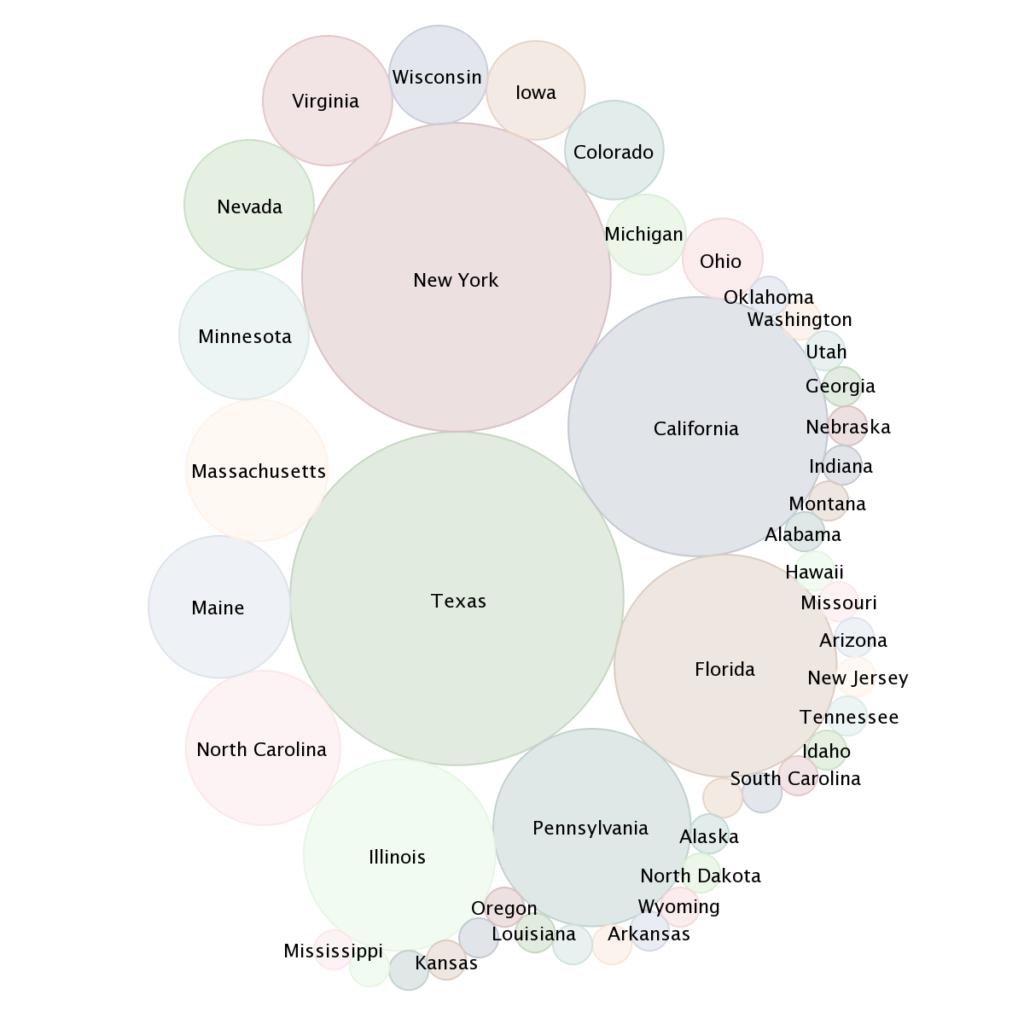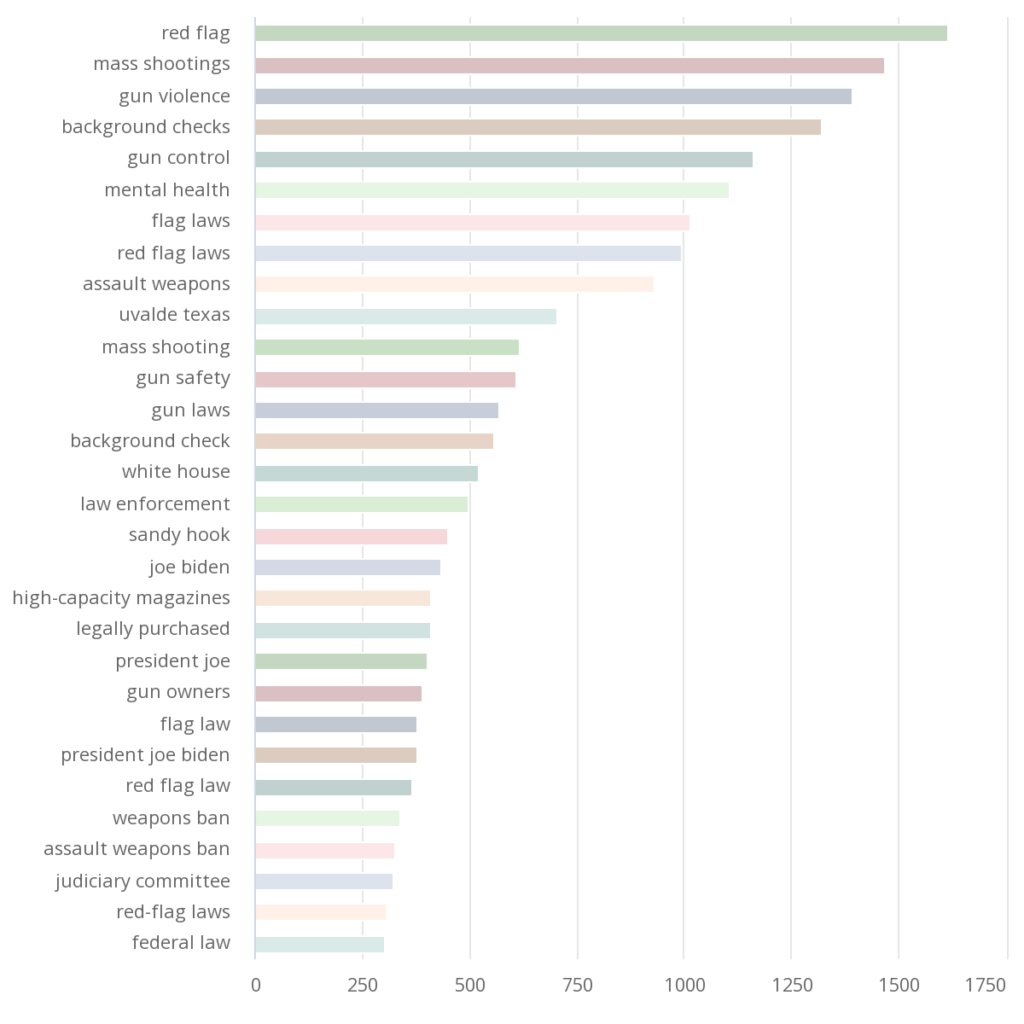
The nation is reeling from the recent series of mass shootings in public places like grocery stores, schools, and hospitals. From New York to Texas, communities have been devastated by senseless violence.
Legislators and media outlets on both sides of the aisle are in contention about how to stop mass shootings. One of the popular propositions from those supporting gun control is the institution of red flag laws. Essentially, red flag laws allow "law enforcement — with a court order — to temporarily seize guns from someone considered a danger to themselves or others."
With bills being proposed in Congress in response to recent shootings, red flag laws have become a key talking point for gun control advocates. EdgeTheory's narrative intelligence brief analyzes this narrative and how U.S. media is treating red flag laws as a whole.
The red flag law narrative is massive. With over 900 unique narratives in the past week alone, it is fair to say that every major (and minor) American news organization is in discussion on this topic.

Texas, New York, and California media outlets have mentioned red flag laws the most in the past week. Unsurprisingly, left-leaning organizations have amplified this narrative much more (386 amplifiers) than right-leaning organizations (233 amplifiers).
Two of the top keywords from the brief are "mental health" and "background checks". These phrases are closely tied to the central focus of red flag laws, which is to deny or revoke someone's right to a firearm if they are deemed to be a danger to themselves or others by law enforcement, or in some cases a mental health professional. The opposition to red flag laws cite the Second Amendment– and state that the new rules would only empower the government to take away the rights of its citizens.
Uvalde, Texas was a top trend (774 sources) in association with this narrative. The shooting at Robb Elementary in Uvalde, while not the first in the recent string of shootings, was the deadliest. The targeting of school children sparked outrage, and, subsequently, heated discussion on how such a tragedy could have been prevented from happening in the first place. Sandy Hook was also mentioned quite frequently (448 sources).

"Assault weapons", "high-capacity magazines", and "legally purchased" are related keywords that echo long-held beliefs from gun control advocates wishing to crack down on the types and availability of firearms for sale in America.
In terms of legislation, there is little chance of a full-on assault weapon ban, and there has been little bipartisan agreement with regard to red flag laws. With a deadlocked Congress, most believe that each state will have to decide on red flag laws individually. According to Axios, 19 states have some version of red flag laws already on the books.
This narrative is far from over, and will most likely play a role for both parties in the upcoming midterms. This brief will update to show how the red flag law narrative is being shaped by U.S. media over time: